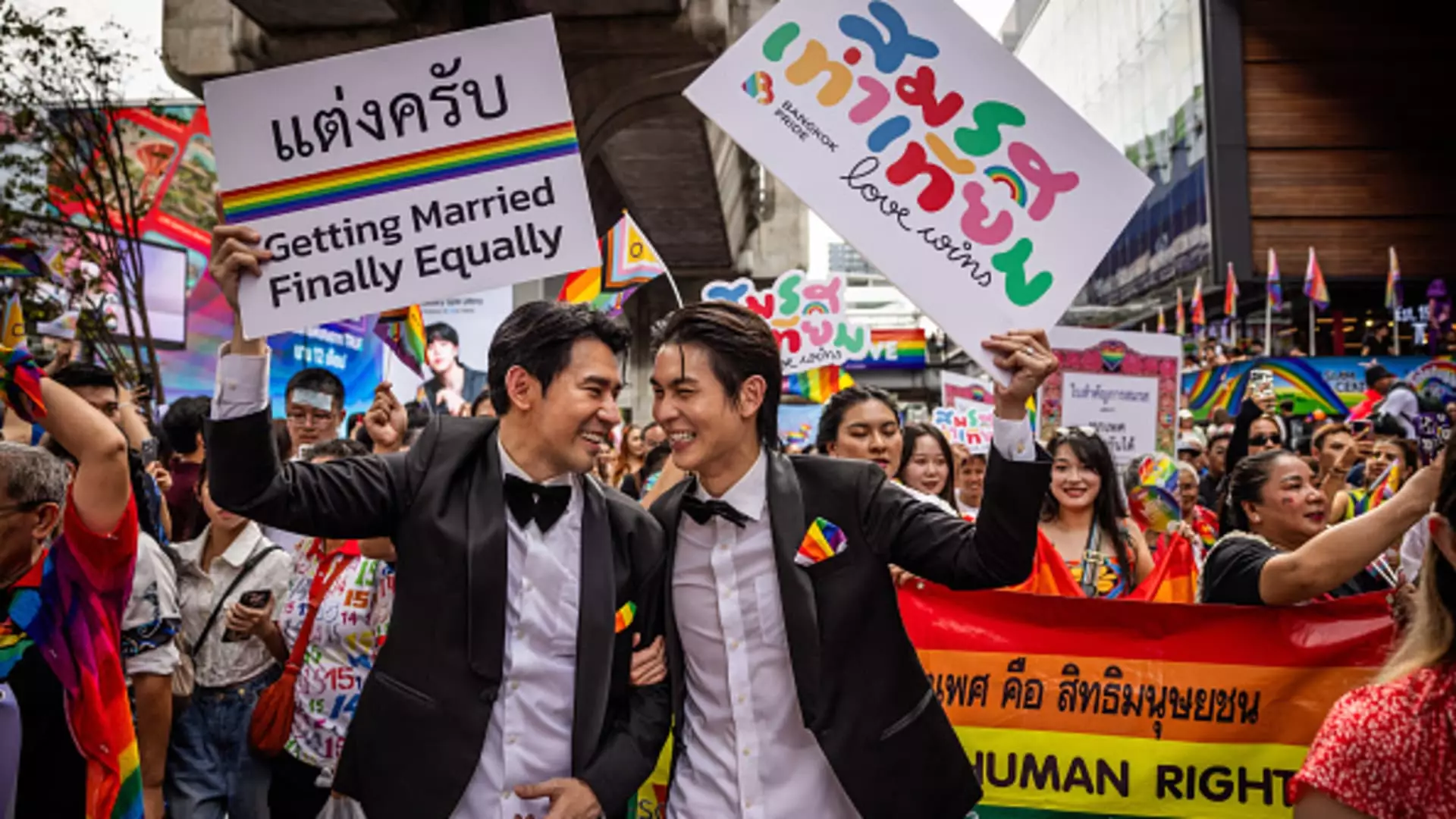In a historic move, Thailand is poised to introduce same-sex marriage legislation, expected to be effective from January 22, 2025. This landmark policy not only marks a significant step for LGBTQ+ rights in Asia, but it also carries promising economic implications for the Thai tourism industry. Recent research commissioned by the travel company Agoda indicates that the enactment of marriage equality could enhance Thailand’s appeal as a travel destination, potentially bringing in an additional 4 million tourists annually and generating an estimated $2 billion in tourism revenue each year within two years of its implementation.
The report highlights that the inflow of tourists will likely comprise not only same-sex couples tying the knot but also their family, friends, and the broader LGBTQ+ community seeking an inclusive and inviting environment. Apart from the emotional and social aspects of the legislation, this change is projected to create around 76,000 full-time jobs in the tourism sector, simultaneously bolstering the nation’s GDP by 0.3%. Such statistics underscore the law’s significance, positioning Thailand as the third country in Asia to establish marriage equality—following Taiwan’s landmark decision in 2019 and Nepal’s more limited legislation earlier in 2023.
Thailand’s decision to embrace marriage equality is not only a crucial social milestone but also part of a strategic economic calculation. The report draws insights from international experiences, such as those of New Zealand and the United States, where similar legislation resulted in a dramatic spike in same-sex weddings. For instance, after New Zealand legalized same-sex marriage in 2013, the majority of weddings by 2016 involved international visitors, especially from Australia, indicating a clear trend of travel linked to marriage. Such historical data illuminates the potential benefits Thailand stands to reap as it gears up for an influx of foreign couples seeking to celebrate their love.
One compelling factor amplifying Thailand’s potential as a destination for same-sex couples lies in its geographic location. Situated within a five-hour flight from over 3.6 billion people, many of whom reside in regions lacking marriage equality, Thailand has a unique opportunity to attract travelers from markets like India, where LGBTQ+ rights are still contentious. This accessibility positions Thailand as a strategic hub for LGBTQ+ couples looking for a celebratory getaway, creating an avenue for profound economic benefits.
Beyond the economic ramifications, the new marriage equality law holds immense cultural significance. It symbolizes a shift in societal attitudes towards LGBTQ+ acceptance and rights, thereby fostering a more inclusive atmosphere not just for foreign visitors but for local communities as well. Organizations like Bangkok Pride are already taking proactive steps to commemorate this evolution in societal norms. Plans for mass wedding events on the first day of marriage registrations showcase the enthusiasm and hope within the community, both domestically and internationally.
The tourism sector is evolving, and Thailand’s focused strategy to attract high-spending tourists, especially those seeking wedding and honeymoon experiences, reflects a larger trend within global tourism. In an ever-competitive market for tourist dollars, the Thai government has identified cultural events such as WorldPride as key opportunities to showcase the country’s newly embraced inclusivity and attract substantial international attention. Successfully hosting events of such magnitude can be transformative, offering not just financial gains but enhancing Thailand’s reputation as a premier LGBTQ+ travel destination.
While the future appears bright with the implementation of marriage equality legislation, it’s essential to recognize that challenges remain. Continued advocacy for broader LGBTQ+ rights and protections will be critical to ensure that the newfound economic and cultural benefits are sustainably enjoyed by all members of the community. Further education and improvements in acceptance will help alleviate potential challenges and support the long-term success of this initiative.
Thailand’s impending same-sex marriage legislation not only stands as a progressive beacon of change in Asia but also promises to be an economic catalyst for the nation’s tourism industry. As Thailand prepares to welcome an influx of same-sex couples and their allies, the country must embrace this opportunity with open arms, solidifying its status as a safe and welcoming destination for all. The intertwining of social justice and economic viability demonstrates a promising pathway toward a more inclusive and prosperous future.


Leave a Reply